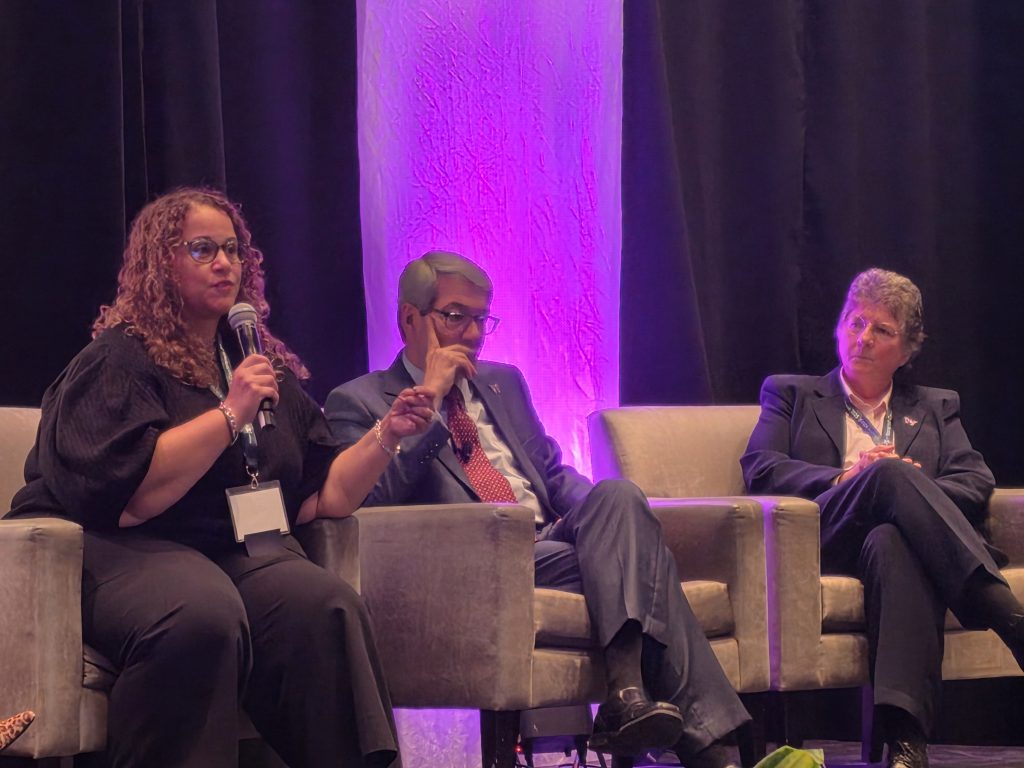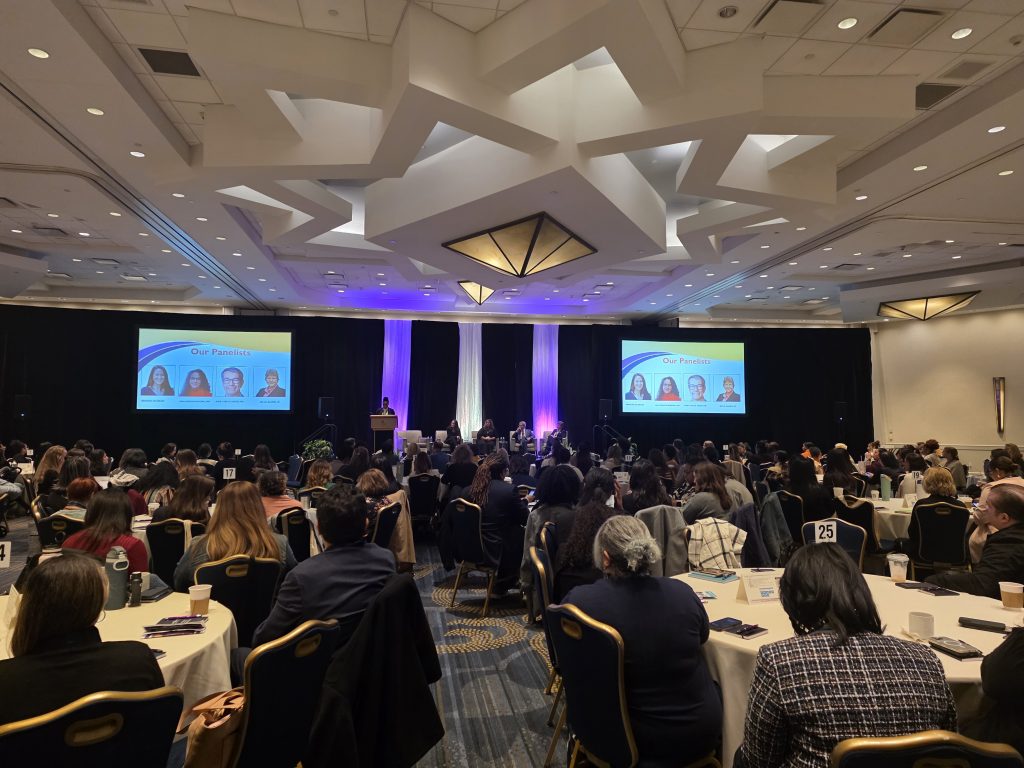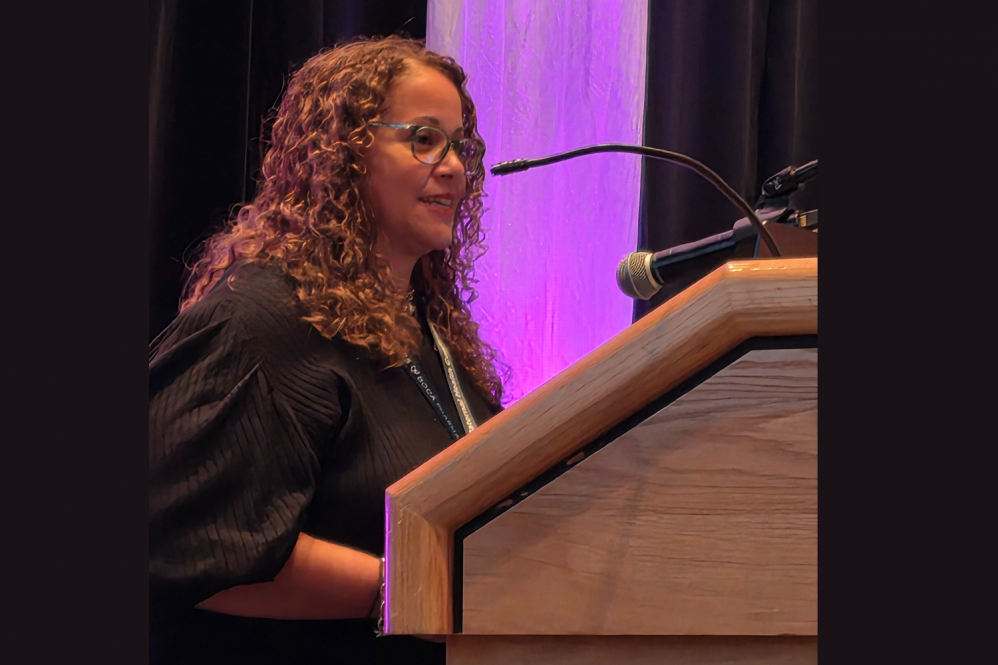On October 10 Connecticut’s Hispanic Health Council hosted its second annual Maternal Health Conference on The Legacy We Carry: Unpacking Intimate Partner Violence and Maternal Health in Hartford. Maternal health and violence prevention experts from across the state discussed how intimate partner violence (IPV) impacts the health of survivors during pregnancy and the postpartum period.
“The Hispanic Health Council’s Maternal Health Conference was a vital platform for addressing the often-overlooked intersection between maternal health and intimate partner violence. This gathering brought together advocates, researchers, and healthcare professionals to confront systemic inequities, elevate culturally responsive care, and ensure that maternal health includes safety, dignity, and justice for all,” said Ken Barela, CEO of the Hispanic Health Council.

The UConn Health Disparities Institute (HDI) contributed to the conversations at the conference through tabling to share information about HDI and presentations to highlight the need for maternal health equity. Dr. Linda Sprague Martinez, director of HDI and professor of medicine, served as the keynote speaker for the conference. She noted, that “although the United States is at the top when it comes to GDP, it is significantly lagging behind when it comes to maternal health outcomes,” and highlighted the presence of pervasive racial inequity in maternal health outcomes in Connecticut and nationally.
Sprague Martinez first spoke as part of a panel introducing the relationship between IPV and maternal health alongside Meghan Scanlon, president & CEO of the CT Coalition Against Domestic Violence; Juan Carlos Areán, Ph.D., program director at Futures Without Violence; and Jill Davies, attorney and deputy director at Greater Hartford Legal Aid and moderated by Daileann Hemmings, DNP, RN, CLC, CCM, system director of Maternal Health Equity at Hartford HealthCare. The panelists discussed research, best practices, and community-focused strategies to engage health care providers, policymakers, advocates, and community leaders in efforts to advance maternal health equity.
Sprague Martinez then followed up the panel with her keynote address on health equity and the social determinants of health to provide the context for the structural factors that operate to influence the intersection of maternal health and IPV.
“The dominant ideology of white supremacy, coupled with patriarchy, creates a cultural norm in which Black, Indigenous and other women of color are unfairly disadvantaged, stigmatized, and demeaned,” said Sprague Martinez who went on to unpack the ways in which these dominant ideological messages are reflected in policies that impact maternal health. She specifically, noted coverage gaps and the absence of federally mandated paid leave in the U.S.

Sprague Martinez also touched upon the health care experiences of Black, Indigenous and other women of color. “In addition to barriers to prenatal care associated with transportation, employment, and housing, Black, Indigenous and other women of color experience pervasive health care inequity…provider bias contributes to care experiences that include being denied services, dismissed, or ignored by providers and health care staff. The poor quality of care that Black, Indigenous and other women of color experience is an added stressor and fuels mistrust,” said Sprague Martinez.
Throughout the event, a common theme that emerged was the urgency of the maternal health crisis across the state and nation. Speakers named structural racism as a driver of the disparate maternal health outcomes among Black, Indigenous, and other women of color. As an organization that aims to advance systems change to dismantle structural racism, HDI was honored to participate in this timely conversation about maternal health equity led by the Hispanic Health Council. Findings from the conference will guide future efforts in improving maternal health outcomes statewide.



